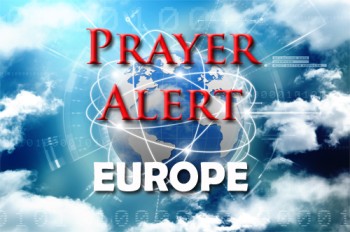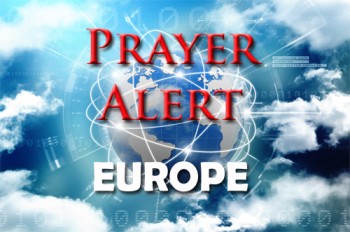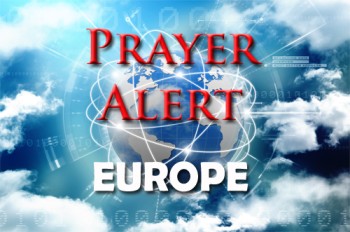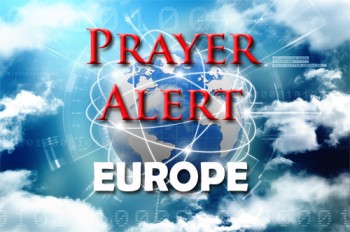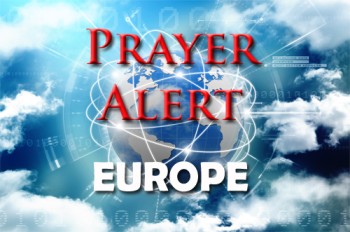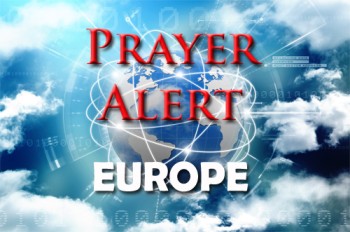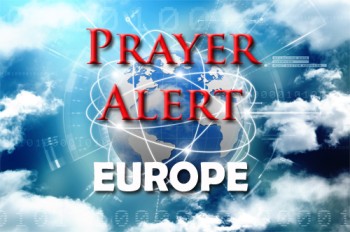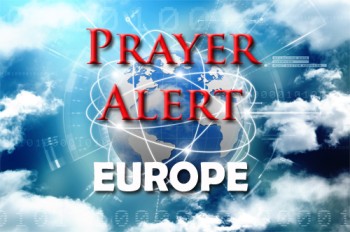Displaying items by tag: Europe
Serbia: protesters form human shield against Jared Kushner’s development plans
Thousands of demonstrators in Belgrade have formed a human shield around the bomb-damaged former Yugoslav defence ministry building, vowing to stop its redevelopment into a luxury complex tied to a company owned by Jared Kushner, Donald Trump's son-in-law. The $500 million project, backed by president Aleksandar Vučić’s pro-Trump government, aims to transform the ruins - once bombed by NATO in 1999 - into a hotel and office district. Critics, however, see the move as an affront to national memory, calling the complex a sacred symbol of resistance against foreign aggression. Lawmakers recently fast-tracked legislation to permit construction despite an ongoing criminal investigation into alleged document forgery used to strip the site’s heritage status. The protests, led largely by students and youth movements, echo wider anger over corruption and government control. As chants of defiance echoed through the capital, protesters pledged unity to defend Serbia’s architectural and historical integrity against what they view as political and economic exploitation.
Hungary / USA: Trump gives one-year exemption from sanctions
Donald Trump has granted Hungary a one-year exemption from US sanctions on Russian oil and gas purchases, marking a diplomatic win for Viktor Orbán. The move followed Orbán’s visit to Washington, where Trump expressed sympathy for Hungary’s dependence on Russian energy as a landlocked nation. The decision contrasts sharply with Trump’s recent threats to penalise countries doing business with sanctioned Russian energy firms. In return, Hungary agreed to buy hundreds of millions of dollars’ worth of US natural gas. While the arrangement may ease Hungary’s energy pressures, it risks deepening tensions within the EU, where many leaders oppose Orbán’s continued cooperation with Moscow. Trump praised Orbán’s leadership and hinted at shared goals for ending the war in Ukraine, underscoring their close personal and political alliance amid growing divisions over energy, sanctions, and peace strategy in Europe.
Russia / USA: resumption of nuclear testing in tit-for-tat decisions
Vladimir Putin’s announcement that Russia may resume nuclear testing marks one of the most dangerous escalations in global security since the Cold War. He has instructed senior military and intelligence officials to prepare proposals for possible tests at the Novaya Zemlya site in the Arctic - where the Soviet Union in the past had detonated more than 200 nuclear devices, but none since 1990. The move follows Donald Trump’s declaration that the USA would restart its own nuclear tests, for the first time since 1992. Both leaders’ actions revive fears of an uncontrolled arms race, just as the last major nuclear treaty between Washington and Moscow nears expiry. Analysts warn that renewed testing could shatter global non-proliferation norms and invite imitation from other states.
Netherlands: winners and losers after election
The Netherlands’ latest election has upended expectations, signalling both renewal and deep division in Dutch politics. After two years of turmoil and paralysis, centrist liberal party D66, led by 38-year-old Rob Jetten, surged to an unprecedented victory, capturing 26 seats and dethroning the far-right PVV of Geert Wilders. Jetten’s optimistic, reform-minded campaign, focused on housing, education, and stability, resonated with voters weary of scandal and polarisation. Meanwhile, Christian Democrat leader Henri Bontenbal’s call for ‘decent politics’ also struck a chord, reviving his party’s fortunes. The left, however, suffered a major setback: Frans Timmermans’ GreenLeft-Labour alliance fell short, prompting his resignation. Though Wilders’ PVV lost eleven seats, he remains a potent opposition voice, vowing to continue disrupting from the sidelines. Coalition-building will now test Jetten’s leadership in a fragmented landscape, where bridging ideological divides may prove harder than winning the vote itself.
France: two citizens released by Iran after more than three years
Iran’s release of French citizens Cécile Kohler and Jacques Paris, after more than three years in detention, marks a cautious diplomatic breakthrough between Tehran and Paris. The couple, accused of espionage by Iran (a charge France has consistently rejected), were freed from Evin prison and are now safe at the French embassy in Tehran, awaiting full repatriation. Their detention, widely viewed as part of Iran’s pattern of ‘hostage diplomacy’, strained bilateral relations and drew condemnation from European governments. The timing of their release follows reports of a prisoner exchange involving an Iranian woman previously held in France. While France celebrates this humanitarian outcome, the case underscores the precarious position of foreign nationals in politically charged environments and the moral complexity of negotiating freedom under coercive diplomacy. For Kohler and Paris, freedom comes after 1,277 days of unjust imprisonment - and for France, it signals relief tempered with renewed diplomatic caution.
Spain / France: ‘game-changer for women’s health’
A groundbreaking approach to diagnosing endometriosis offers potential to revolutionise research and treatment of the disease. Affecting one in ten women, endometriosis often goes undiagnosed for years. Traditionally, diagnosis involves invasive procedures like laparoscopy. However, scientists in Spain and France have developed a method of analysing blood-derived stem cells (MenSCs) directly from menstrual samples. This preserves the cells' molecular integrity, allowing researchers to study endometriosis more accurately. By using a technique common in cancer diagnosis, researchers achieved an 81% accuracy rate in distinguishing endometriosis patients from healthy individuals. This non-invasive method, developed by endogene.bio and collaborators, could reduce diagnosis time from years to weeks. The study has gained attention from the pharmaceutical industry, as potentially it could transform endometriosis management and patient care. The co-founder of endogene.bio says: ‘This world-first approach to endometriosis research and diagnosis is truly game-changing for women’s health.’
Spain: trauma and anger continue, one year after Valencia floods
In October 2024, devastating floods swept through Spain’s Valencia region, leaving 229 people dead and countless others traumatised. Among the victims were Miguel and Sara, a father and daughter who perished together while trying to save their car from rising waters. For their widow and mother, Toñi García, the pain remains raw – just one example of the human cost behind the natural disaster known as the Dana. One year later, Valencia continues to rebuild both its cities and its spirit. Memorials honour those lost, while reconstruction and new safety protocols aim to prevent a recurrence. Yet grief and trauma linger, especially among children who now fear the rain which once brought destruction, and anger at the handling of the Dana on the day it struck refuses to fade. As towns like Paiporta rise from the ruins, residents are striving for resilience and renewal.
Zelenskyy joins European summit as EU and US ramp up Russia sanctions
Ukrainian President Volodymyr Zelenskyy joined European Union leaders in Brussels as both the EU and the US announced fresh sanctions on Russia for refusing a ceasefire. Arriving at the summit, Zelenskyy reaffirmed that Ukraine will make “no territorial concessions,” rejecting any pressure to surrender land occupied by Russian forces. EU leaders pledged continued unity with Kyiv while discussing a new proposal to use frozen Russian assets in Belgium to fund Ukraine’s defence and postwar reconstruction—though legal and political hurdles remain. The summit also addressed Europe’s wider security strategy, economic competitiveness, and climate commitments, alongside debates on migration and the Middle East. US President Donald Trump supported the tougher sanctions and acknowledged that Vladimir Putin still seeks control over all of Ukraine. Zelenskyy thanked allies for their backing, emphasising that Ukraine’s struggle is not just for national sovereignty but for the defence of freedom across Europe. EU officials said the meeting’s goal was to maintain solidarity and prevent fatigue in supporting Kyiv’s resistance.
Dublin: Three gardaí injured and 23 people arrested in second night of Citywest public disorder
Serious unrest broke out for a second consecutive night near the Citywest Hotel in Dublin, leaving three gardaí hospitalised and 23 people arrested. Around 500 people, mostly young men and teenagers, were involved in violent disturbances outside the hotel, which currently houses asylum seekers. Projectiles including bottles, bricks, and flares were thrown at officers, with one garda struck on the head. Over 300 police were deployed, supported by mounted, dog, and air units, though water cannon use was not required. The violence followed an alleged sexual assault on a 10-year-old girl earlier in the week. Justice Minister Jim O’Callaghan condemned the “thuggish violence” and promised those responsible would be “dealt with relentlessly.” Garda Commissioner Justin Kelly warned of a “robust response” to any further disorder, stressing that the gatherings were not peaceful protests. Taoiseach Micheál Martin praised officers for their bravery, describing the attacks as “vile abuse” against those protecting the community. A senior investigating officer has been appointed to lead inquiries. See
France: Death threats for former President Sarkozy in prison
Former French president Nicolas Sarkozy has received death threats just one day after beginning his five-year prison sentence for criminal conspiracy at La Santé prison in Paris. A video circulated online appeared to show an inmate verbally threatening Sarkozy as he arrived at the facility. Prosecutors have launched an investigation, questioning three prisoners and seizing two mobile phones believed to be linked to the video. In response to security concerns, authorities have assigned two police officers as permanent bodyguards housed in nearby cells, a move that has drawn criticism from prison unions who say they were not informed. Interior minister Laurent Nunez defended the arrangement, saying Sarkozy’s protection was justified “because of his status” and “a clear threat.” Sarkozy, who led France from 2007 to 2012, was convicted of taking illegal campaign funds from Libya, a charge he continues to deny as politically motivated. His lawyers have appealed the ruling and are seeking early release before Christmas.
